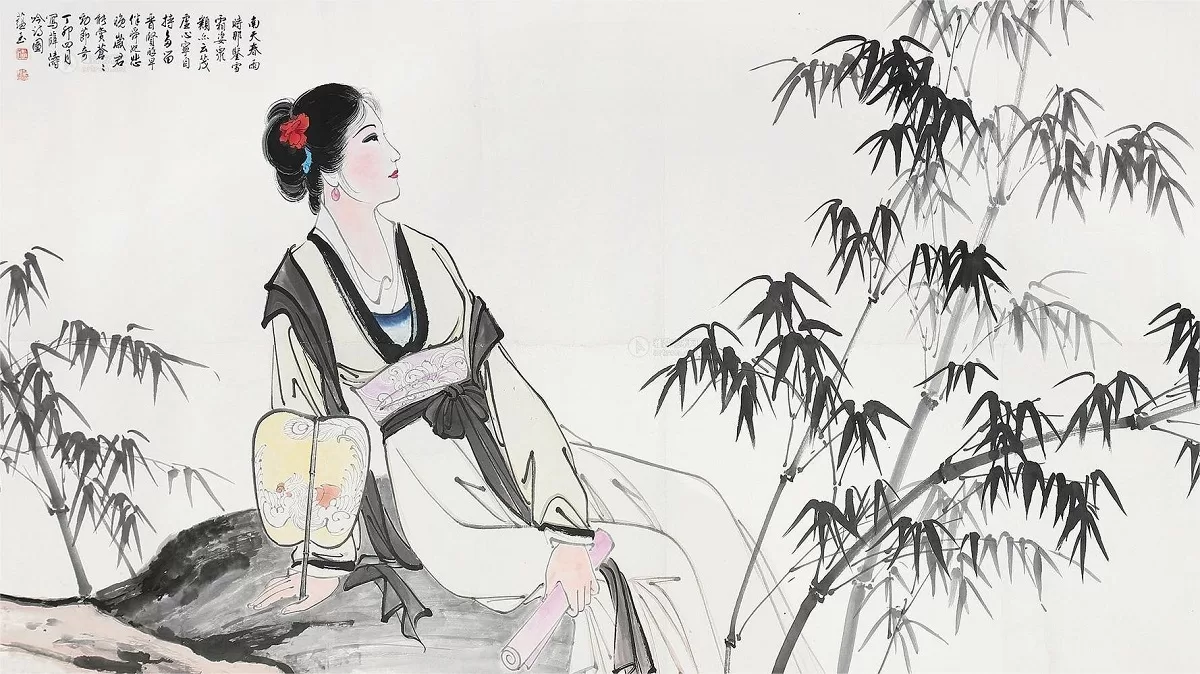Xue Tao (薛涛), often referred to as the “Lady Xue,” was a prominent Chinese poet who lived during the Tang Dynasty. She is widely recognized as one of the most celebrated female poets in Chinese literary history. Born in 768 CE in Chang’an (modern-day Xi’an), Xue Tao overcame numerous societal barriers and achieved significant recognition for her literary talents during a time when women’s roles were largely confined to the domestic sphere.
Xue Tao displayed a remarkable aptitude for poetry from a young age. She was raised by her father, who was an educated scholar, and he recognized her talent and nurtured her love for literature. She received a thorough education in classical Chinese literature, including the study of Confucian texts, poetry, and calligraphy.
During the Tang Dynasty, poetry was highly valued, and there was a flourishing literary culture. Xue Tao became part of a community of poets known as the “Six Dynasties Immortals” in Chang’an. She formed close friendships with renowned poets such as Bai Juyi and Yuan Zhen, who recognized her exceptional talent and became her patrons.
Xue Tao’s poetry reflected her unique perspective as a woman, often exploring themes of love, longing, and the challenges faced by women in society. Her work exhibits a delicate sensitivity, emotional depth, and profound insight. Xue Tao’s poetry was known for its lyrical beauty, elegant language, and vivid imagery. She skillfully employed various poetic forms, including fu (a form of lyrical poetry), ci (lyric poetry set to music), and shi (regulated verse).
Despite her remarkable talent, Xue Tao faced many obstacles as a female poet in a male-dominated society. She was keenly aware of the limitations imposed on women and expressed her frustration and longing for freedom in her poetry. Xue Tao’s verses often explored themes of unrequited love, the transient nature of beauty, and the struggles faced by women confined to societal expectations.
Xue Tao’s poetic talent brought her considerable acclaim during her lifetime. Her poetry was highly regarded by her contemporaries and praised for its emotional depth and literary excellence. She earned the respect and admiration of prominent poets, scholars, and members of the imperial court.
However, Xue Tao’s literary career was not without challenges. As a woman, she faced societal criticism and censure for engaging in activities traditionally considered male pursuits. Despite these obstacles, Xue Tao persevered, leaving a lasting legacy as one of the few female poets from the Tang Dynasty whose work has survived to the present day.
Today, Xue Tao’s poetry continues to be celebrated for its enduring beauty and profound insight into the human experience. Her work stands as a testament to her remarkable talent, as well as a poignant reminder of the struggles faced by women in pursuit of their artistic aspirations. Xue Tao’s contributions have had a significant impact on Chinese literature and continue to inspire generations of poets and readers alike.


